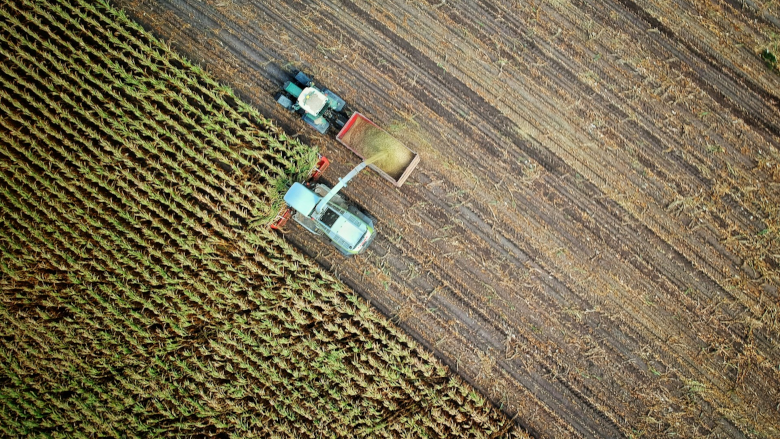

With the advancements in AI and other technologies, cybersecurity risks have grown more prevalent in an increasingly complex threat landscape. Naturally, this calls upon cyber professionals to uplevel and expand, but the cyber talent skills gap presents a challenge across industries.
According to a recent study, nearly 90% of organizational leaders said they experienced a breach that they can partially attribute to a lack of cyber skills in the past year. Although there has been traction and initiatives across the security industry to address this problem, even from a federal level with the National Cyber Workforce and Education Strategy (NCWES), the skills gap persists.
A strong cybersecurity defense is essential to the success and longevity of any business that leverages technology in its day-to-day operations, but an industry with an added element of urgency that likely is not top-of-mind is the farming space.
From planting to harvesting, farming leverages the latest and most advanced technology to centralize everyday operations to power these massive business operations. So much so that the world’s food security is dependent on securing and protecting the data of machines and equipment, which makes the deficiencies in the cybersecurity workforce a major point of concern.
The stakes are high. But as long as the skills gap remains, there will be tremendous opportunities for aspiring security professionals to pursue careers in rapidly growing tech spaces like agriculture, where their talents can be fostered and cultivated.
Analyzing the security needs in farming
While the need for cybersecurity talent is universal across all industries, especially as the threat landscape expands, the unique challenge it presents in agriculture is that the security of farming operations directly impacts our global food supply. The COVID-19 pandemic gave a glimpse of what food insecurity could look like, with shortages of staples in grocery stores and local markets. A massive cyberattack could amplify food insecurity on a global scale, leading to the decimation of entire crops or farms shutting down entirely.
For the security sector in agriculture specifically, there is a knowledge gap around the uniqueness of the product — cyber threats on farming equipment are a new concept, and the skills needed to combat these threats are also not widely practiced. Because cybersecurity in the agriculture space is a less seasoned career path, young talent doesn’t always think to consider it. However, with a new and exciting need for talent in this particular field, there is an opportunity for young professionals to pursue a career in a rapidly developing space.
The industry needs to capitalize on this rising interest by providing the proper tools and training to support talent growth and learning — whether through training programs that include hands-on, real-life simulations or recruitment initiatives that provide prospective talent with accessible opportunities to get involved in the industry. When it comes to addressing the skills gap, the challenge isn’t necessarily attracting talent, it’s creating an environment that can foster the specialized skill set that is needed.
Addressing the skills gap
In any industry with a plethora of IoT devices, there are unique skills required from security professionals. For example, tractors have multiple unique operating systems and each one of those systems has a back door that is susceptible to threat actors. Examples range from correction services used for precision farming or open debug and USB ports that can be used to extract keys that are common across an entire fleet. Defenders must be able to easily identify whether each event is a malfunction or an attack.
In terms of training, effective cybersecurity professionals need to know all IT domains — this means being familiar with all possible areas that could be attacked so they can identify where risks are and how they could be exploited. The best way to build this familiarity is to expose talent to hands-on training experiences where they can get familiar with attacks, learn what to watch for, and understand how attackers operate. The more a defender can think like an attacker, the better position they will be in to look at systems from a critical view.
Talent also needs to be able to analytically assess a fleet — this particular skill is a new necessity for the industry. This skill means asking the right questions to get critical answers. It’s important to get cyber defenders to start at the highest level of analysis, and then to get more detailed: what kind of data do they have, who interacts with it, and are there other external connections?
The challenge is to cultivate talent that can think critically while identifying weak spots. The best way to train talent to do this is to develop scenarios that align with this approach.
Cultivating talent
Inevitably, not providing proper training and education will only cause the skills gap to widen. Cybersecurity is a high-pressure and challenging job, and in the past year alone 74% of business leaders reported staff taking time off due to stress, fatigue or burnout. This is why it’s so important to provide people with the tools, resources and training that not only helps attract new talent to the field but also cultivates an environment that keeps people hungry to learn and do their best work.
As technology advances in agriculture, a wider talent pool of cyber professionals becomes not only a nice thing to have but a necessity to ensure global food security. With the right initiatives, planning and training opportunities, the industry will be able to capitalize on this significant turning point in agriculture and create a workforce more skilled and readily able to defend against future attacks.
https://www.securitymagazine.com/articles/101060-addressing-the-wider-cyber-skills-gap-through-the-agriculture-industry

